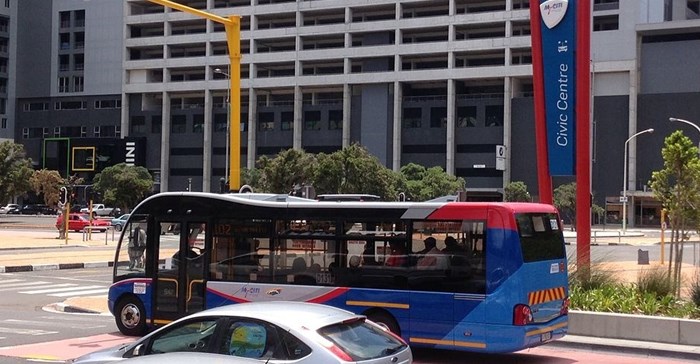Marketing & Media trends
Industry trends
BizTrends Sponsors
Trending
[BizTrends 2016] Mobility trends 2016

Intermodality, using two or more modes of transportation in a journey, is what makes any world-class transport system work. An efficient, integrated transport system is a critical pillar of the economic performance of any city. It contributes toward making the city more investment friendly and more attractive to inward investors.
Many South African cities have made large investments towards the implementation of the Bus Rapid Transit systems to complement a wide network of railway lines and train services delivered by PRASA and Gautrain. It would not be correct to mention public transport in SA and not mention the fact that SA has a very vibrant minibus industry that has been moving millions of passengers' every day, for decades.
However, the last few years have seen a new breed of disruptors make their entry into the SA transport market. The likes of Uber and Locomute who provide technology enabled mobility, move millions of commuters across our cities. 2016, therefore, promises to be a year that we will see a number of new innovations in the car sharing, ride sharing, bike sharing and transport space in general.
Bus Rapid Transit
The City of Johannesburg continues to invest on expanding the network coverage of Rea Vaya Bus Service throughout Johannesburg. These buses now have routes in Sandton and Alexandra. We expect this network to expand and include more suburbs and townships in the North and Western parts of the metro by 2016.
MyCiti, Cape Town's own BRT, continues to provide a critical transport link while Durban is in its final stages of infrastructure planning in readiness for their BRT system. This will change the face of the city in the coming year. Tshwane's Areyeng BRT will begin its second phase of implementation in 2016. Rustenburg and Nelson Mandela Bay are at various stages of BRT implementation

Ride-sharing
A growing number of people have opted for new innovative options to get around the city instead of the traditional options such as hailing taxi cabs. Over the last year Uber, the global ride-sharing app, made its billionth trip. That's a lot of rides in any language. In South Africa, Uber has completed over two million rides. They have a presence in Johannesburg, Cape Town and Durban and have recently expanded their service to Port Elizabeth.
Car sharing
A car used to be the ultimate symbol of freedom and independence but increasingly consumers view ownership as an expense and a burden. Often considered the gateway to other forms of collaborative consumption, car sharing is becoming increasingly popular with its promise of personal convenience and social improvement.
This is the time to explore this new age where access is better than ownership. Around the world, this mode of transport is gaining traction and lately in the emerging markets we are seeing more car sharing operations being started. Growing from six operators in 2012 to 41 by mid-2015, car sharing is rapidly expanding in emerging markets worldwide. Car sharing companies currently operate in seven emerging markets, including Brazil, China, India, Malaysia, Mexico, South Africa and Turkey. South Africa has its own operator, Locomute, who operate in Johannesburg, Cape Town and Durban.
Agragating systems
2016 will see transport aggregator mobile apps such as RideScout and myTaxi take centre position enabling commuters to move from point A to point B faster and smarter. These mobile apps show real-time information about transportation options that are available at that moment. They provide information about all transit, bus, bike, taxi, car share, ride share, parking and walking directions in one view.
Transport payment systems
This year we are likely to see a roll out of new innovative universal ticketing systems. These mobile apps will enable users of public transportation to pay for their transport charges without using cash, coins, bank cards or even magnetic-stripe transport cards. These solutions obviate the need for users to rummage through their handbags and wallets for money and cards and take away the long boarding queues created by the time taken by each person to swipe their cards, or find enough coins/notes to be slotted into the coin machine or paid to the conductor.









